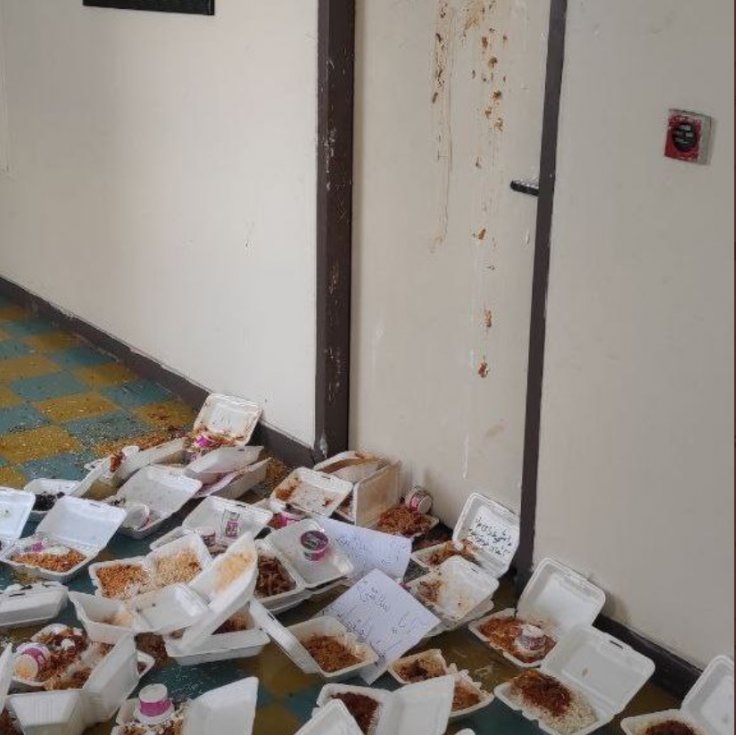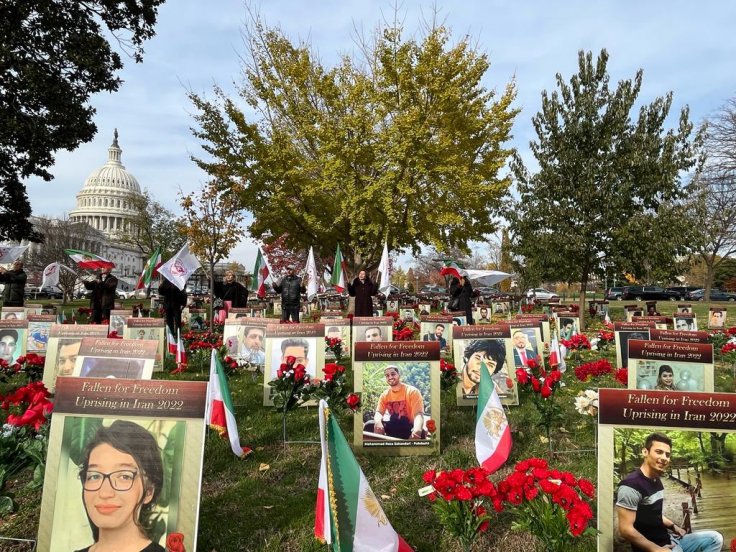A group of 1,200 university students in Iran was reportedly poisoned on the night before they were to hold out anti-regime protests across the country. The students were struck by food poisoning on the eve of the protests as they experienced vomiting, severe body aches and hallucinations in masses, the national student union claimed.
In an act of defiance, students at the universities of Kharazmi and Arak and several other universities said that they threw the food that was handed to them onto the surrounding streets. The nation's national student union accused the authorities of purposefully poisoning the people, the Daily Telegraph reported on Tuesday.
Silencing Their Voice

Similar outbreaks were observed at four other university campuses. According to reports, students are boycotting the cafeterias in protest and on fears of being poisoned. The student union contended that the population had been deliberately poisoned, despite officials claiming that water-borne bacteria were to blame for the alarming symptoms.
"Our past experiences of similar incidents at the Isfahan university negates the authorities' reason for this mass food poisoning," the group wrote on Telegram.
According to Arab News, some university clinics shut down or ran out of resources to treat dehydration, fueling speculation that the outbreak was intended to put an end to the three-day strike in retaliation to the Iranian regime's claims that it had dismantled the contentious morality police.
The morality police, formerly known as the Gasht-e Ershad, or "Guidance Patrol," was founded in 2006 to uphold the strict dress codes for women in the county. The dress code, which dates back to the immediate aftermath of the 1979 revolution, mandates that all women cover their heads in public by donning hijabs.
The group came under criticism following the death of student Mahsa Amini, 22, while in police detention in September. Amini, a prospective attorney, was allegedly detained because her hijab exposed some of her hair.
However, an Iranian state broadcaster denied the morality police being abolished. "No official in the Islamic Republic of Iran has confirmed the closure of the morality police," a state broadcaster said.

"Some foreign media have tried to characterize the attorney general's statement as the Islamic Republic's withdrawal from its hijab (laws) and influenced by the recent riots."
Complete Unrest
Amini's mysterious death sparked nationwide protests spearheaded by women. Along with large-scale street protests, well-known people like actors Katayoun Riahi and Hengameh Ghaziani are posting pictures of themselves out in public sans headscarves.

Even during Iran's brief World Cup appearance last month, players and supporters objected to singing the nation's anthem.
Although there has been a lot of movement, the Iranian government has shown little signs of buckling to public pressure. Clarifications that the decision could not be officially confirmed swiftly followed initial claims that the morality police had been dissolved.
In the midst of the claims of food poisoning, Iranian journalist Masih Alinejad posted a picture on Twitter of a worker at an amusement park who was not wearing a headscarf. "Tehran's prosecution has opened a case against her," Alinejad wrote.

"[The] morality police hasn't been abolished. It was an absolute lie."
Amid all these, Iranian authorities shut down two businesses owned by former national football team star Ali Daei on Monday as more prominent Iranians voice their support for the uprising.
The former striker, who amassed 109 goals for his country, claimed last week that he had received threats for publicly endorsing the anti-regime movement. Authorities forced the closure of a restaurant and jewelry business owned by Daei during the move.








